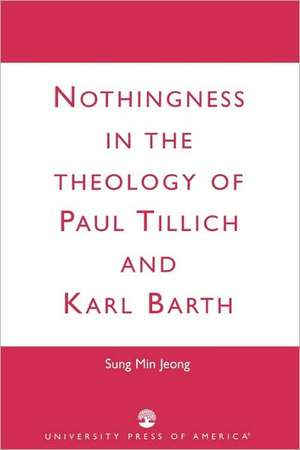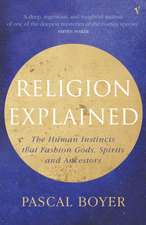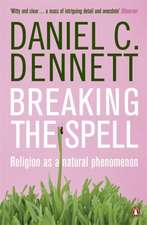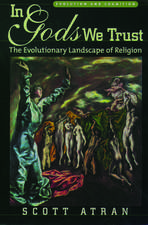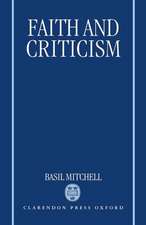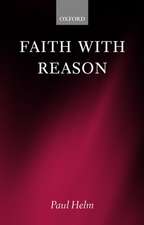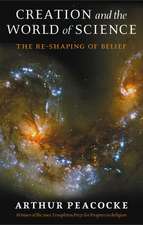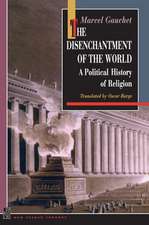Nothingness in the Theology of Paul Tillich and Karl Barth
Autor Sung Min Jeongen Limba Engleză Paperback – 13 mar 2003
Preț: 415.38 lei
Preț vechi: 539.46 lei
-23% Nou
Puncte Express: 623
Preț estimativ în valută:
79.50€ • 82.36$ • 66.34£
79.50€ • 82.36$ • 66.34£
Carte tipărită la comandă
Livrare economică 21 martie-04 aprilie
Preluare comenzi: 021 569.72.76
Specificații
ISBN-13: 9780761825005
ISBN-10: 0761825002
Pagini: 162
Dimensiuni: 152 x 229 x 9 mm
Greutate: 0.25 kg
Ediția:New.
Editura: Rowman & Littlefield
ISBN-10: 0761825002
Pagini: 162
Dimensiuni: 152 x 229 x 9 mm
Greutate: 0.25 kg
Ediția:New.
Editura: Rowman & Littlefield
Notă biografică
Descriere
In this book, both Tillich's nothingness and that of Barth are investigated, especially in their doctrines of God, Christologies, anthropologies, and understandings of the problem of evil, which will lead to a better understanding of their existential analyses of being and non-being and their implications with their Trinitarian God.
